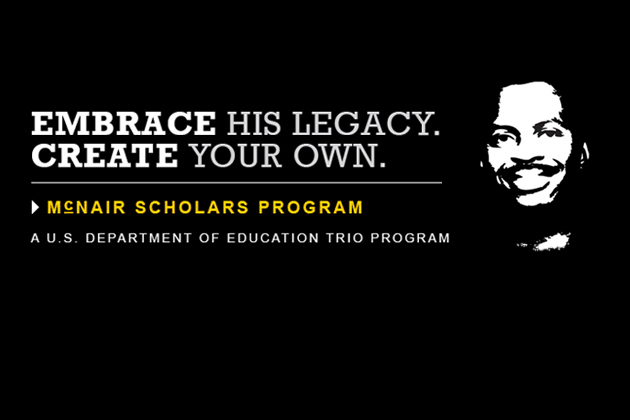 The University of Connecticut has been awarded a grant worth $220,000 annually for five years through the U.S. Department of Education’s McNair Post-baccalaureate Achievement Program. The grant is part of a national initiative to help undergraduate students from disadvantaged backgrounds pursue doctoral degrees.
The University of Connecticut has been awarded a grant worth $220,000 annually for five years through the U.S. Department of Education’s McNair Post-baccalaureate Achievement Program. The grant is part of a national initiative to help undergraduate students from disadvantaged backgrounds pursue doctoral degrees.
This is UConn’s first award in the competitive grant program, and the University’s Center for Academic Programs plans to have the McNair Scholars Program in place by spring semester. It will serve 25 low-income, first-generation, and underrepresented students enrolled in doctoral programs in science, technology, engineering, and mathematics (STEM) fields.
The program is named in honor of Ronald E. McNair, Ph.D., a NASA astronaut who died during the launch of Space Shuttle Challenger in 1986.
As the state’s flagship institution of higher education and a nationally ranked public research university, UConn is well positioned to prepare students for enrollment and success in the STEM programs through the McNair initiative, its officials say.
“We are very excited to be awarded a McNair grant, as it fulfills the university’s land grant mission and will provide equal access to research opportunities for UConn’s underrepresented students,” says Assistant Vice Provost Maria D. Martinez.
Under the McNair program, higher education institutions compete for the grants to prepare eligible students for doctoral studies through involvement in research and other scholarly activities. UConn becomes the first public college or university in Connecticut to offer the McNair initiative, and one of only four public institutions throughout New England with the program.
“These funds will lend a helping hand to students from disadvantaged backgrounds who have demonstrated strong academic potential,” says U.S. Secretary of Education Arne Duncan. “They will help institutions support those students, with the ultimate goal of increasing the number of people from underrepresented segments of our society who have doctorates.”
Institutions work closely with participants as they complete their undergraduate requirements. The institutions encourage students to enroll in graduate programs and then track students’ progress through to the successful completion of advanced degrees.
Projects must offer opportunities for research and other scholarly activities at the recipient institution or graduate center. The activities include summer internships, seminars, tutoring, academic counseling, and other work to help students enroll in graduate programs.
The projects also may provide services to improve financial and economic literacy, mentoring, and exposure to cultural events and academic programs not usually available to disadvantaged students.
McNair is one of seven programs collectively known as the Federal TRIO Programs. TRIO is the Education Department’s oldest college preparation and student support effort. The Federal TRIO Programs have a long history of providing support to low-income students and students whose parents never completed college.
UConn’s Center for Academic Programs (CAP), which implements TRIO programs on campus, increases access to higher education for high-potential students who come from underrepresented ethnic or economic backgrounds and/or are first-generation college students.
CAP prepares students for successful entry into, retention in, and graduation from a post-secondary institution through its constituent programs: Educational Talent Search, Upward Bound and state-funded initiatives that provide programs to increase middle and high school students’ college access and retention.
Student Support Services provides programming to increase the enrollment, retention, and graduation of first-generation, low-income and/or underrepresented students at the University of Connecticut.



